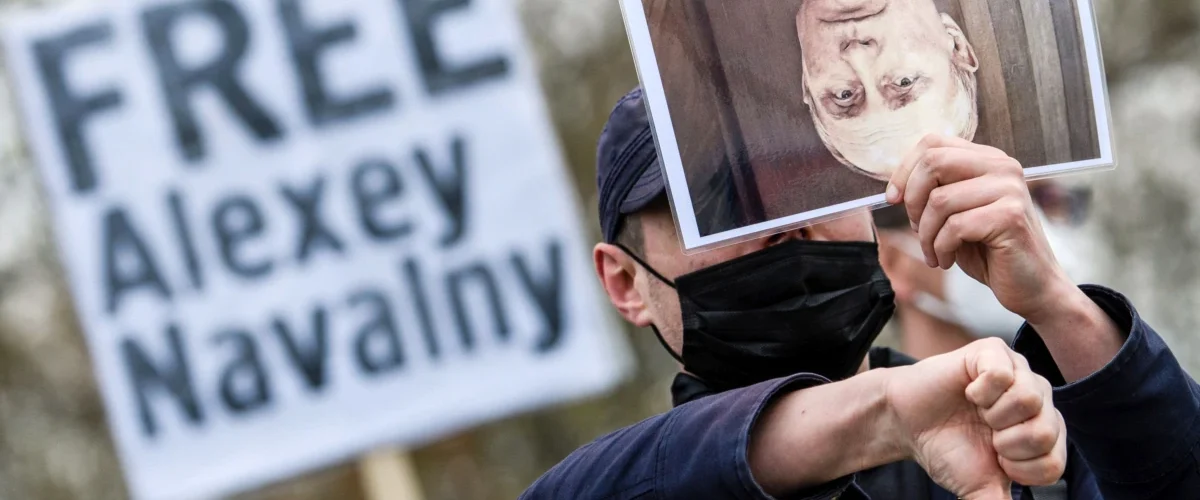The Kremlin says is has no “respect” for the decision by European lawmakers to award jailed opposition politician Aleksei Navalny with the Sakharov Prize, the European Union’s highest human rights honor.
Many observers say the award sends a strong message to Putin that his fiercest foe is now a global figure and not just a local Russian phenomenon that the Kremlin has been portraying as a criminal who ran an extremist organization.
“We respect [the European Parliament], but no one can make us respect such decisions,” Kremlin spokesman Dmitry Peskov told reporters in Moscow on October 21.
Peskov was responding to a question a day after Navalny was chosen for the award from a short list that included a group of Afghan women and a jailed Bolivian opposition politician.
Navalny, one of Russian President Vladimir Putin’s most vocal critics, was jailed in January after returning to Russia from Germany, where he was treated for a poisoning he said was ordered by the Kremlin, a charge Moscow denies.
The EU has imposed sanctions on Russian officials over Navalny’s poisoning and imprisonment.
The 45-year-old lawyer was subsequently sentenced to 2 1/2 years in prison on a parole violation charge that he denounces as politically motivated.
Previous winners of the award, named after Soviet dissident Andrei Sakharov, include former South African President Nelson Mandela and Malala Yousafzai, a Pakistani campaigner for women’s rights and education.
Navalny is the third recipient of the award to come from Russia since it was launched in 1988.
Anatoly Marchenko, a Siberian-born Soviet dissident, author, and human rights activist — who spent more than one-third of his life in prison or internal exile — won the award posthumously in 1988 along with Mandela.
Memorial, the Russian human rights group headed by Sakharov in the late 1980s, won the prize in 2009.


















